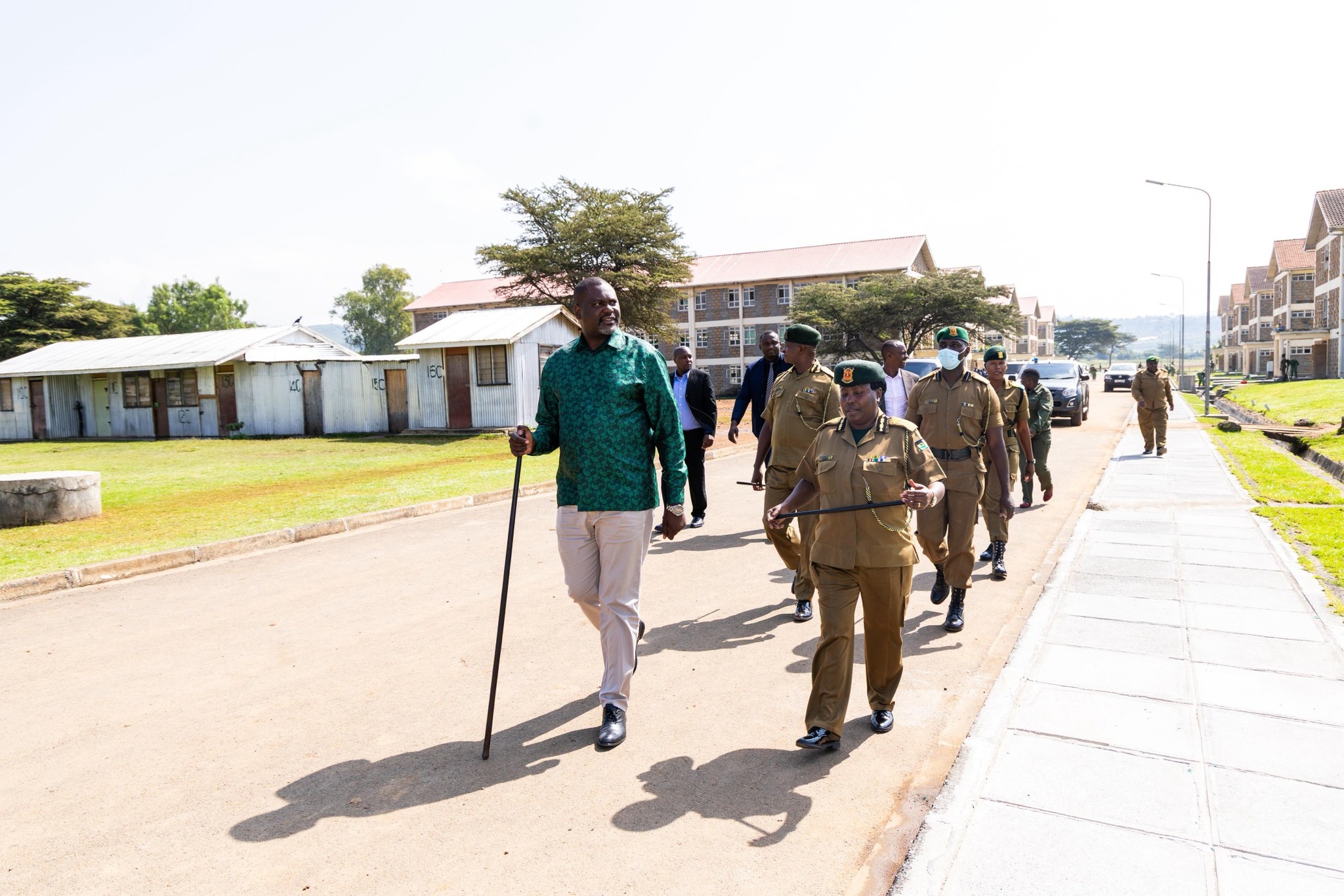

The National Youth Service, once hailed as the country’s
flagship youth empowerment programme, stands at a crossroads.
Auditor general’s report for the financial year ending June 30, 2024, exposes a litany of issues, including financial mismanagement,
governance failures and operational inefficiencies that demand urgent intervention.
The revelations, ranging from unsupported asset
valuations worth billions to stalled projects and systemic procurement fraud,
paint a picture of an institution gravitating towards dysfunction.
The auditor general has given a qualified opinion on the
NYS financial statements, a conclusion that points to deep-rooted
accountability gaps.
It was established that the institution’s property,
plant and equipment, valued at Sh29.5 billion, lacks verifiable documentation.
In the same vein, there is no complete asset register
or proper tagging systems to track acquisitions, locations or depreciation.
Alarmingly, for instance, 42 out of 58 parcels of NYS
land, including prime plots in Yatta and Mombasa, lack ownership documents,
leaving them vulnerable to encroachment by private developers.
In another instance, the Engineering Unit’s land in
Nairobi and Mombasa has been illegally occupied, with structures erected
unabated.
The financial rot extends to unsupported adjustments of
Sh742 million in asset valuations, made without schedules or expert reports.
Also flagged in the scathing audit are the refundable
deposits of Sh315 million meant for youth cohorts in the 2014–15 empowerment
programme, which remain unaccounted for.
The NYS claims to be tracing beneficiaries, but the auditor general said there was no proof of payments, suggesting funds may have
been diverted.
The revelations point to the monumental task awaiting
Public Service CS Geoffrey Ruku in his resolve to transform the
NYS and inject vibrancy into its operations.
With President William Ruto’s administration
prioritising accountability, the CS’s ability to steer the NYS back to its
mandate will test his resolve and strategic acumen.
His early actions, including suspending officials,
probing procurement and pushing for NYS Act amendment, have been hailed as a
commendable start.
But he must now oversee a forensic audit to reclaim NYS’
stolen assets and prosecute encroachers, a move aligned with his recent
suspension of senior managers implicated in graft.
While noting the challenges, the CS, when contacted
about his next steps, said he had come up with a plan, which is set for rollout
in the coming months.
“We are reorganising the institution. A commercialisation
strategy is at an advanced stage in readiness for rollout,” the CS said,
disclosing a plan for double intake (40,000) starting January.
But even as the CS rolls up his sleeves, a cash crisis
is likely to hamper the efforts, worse off with the many stalled projects the
institution is grappling with.
NYS reported a deficit of Sh211 million in the year
under review, and a negative working capital of Sh550.2 million.
“In the circumstances, the service’s sustainability and meeting short-term obligations is doubtful,” Gathungu said.
The statements, it emerged, were
prepared on the assumption the government would continue supporting the entity.
The auditor general’s report catalogues abandoned
projects amounting to millions in wasted taxpayer funds.
A Sh192 million kitchen and barracks project at the
Ruaraka Engineering Institute has stalled since 2011, after 90 per cent of payments
were disbursed.
Cracks mar the unfinished structures, yet no contractor
has been surcharged for delays.
Similarly, a Sh49 million housing project in Industrial
Area lies incomplete after contractors absconded with payments.
The failures reflect a culture of impunity that CS Ruku
must dismantle through stricter oversight and punishing rogue contractors.
NYS’ procurement system also remains broken despite years
of the same being flagged by the auditor general.
In the latest audit, an undisclosed debt of Sh16.4
billion is cited, an amount that includes Sh10.9 billion held by investigative agencies
over fraud allegations.
CS Ruku recently directed the Public Procurement
Regulatory Authority (PPRA) to audit all NYS tenders since 2019 to weed out
fictitious claims.
The CS further pushed for a review of the NYS Procurement
Manual, pledging to enforce compliance with the Public Procurement Act.
NYS also has a governance crisis, as pointed by the
auditor general, detailing a council without teeth.
The NYS Council, tasked with strategic oversight, is
itself a weak link, Gathungu says, noting vacancies in key independent member
positions.
She also red-flagged appointees lacking relevant
expertise to match the high-level decisions the agency’s council makes.
Inefficiencies have also ensued, from derelict
facilities to makeshift classrooms lacking electricity.
Auditors established that the service is “operating in
an unfriendly environment in most of the field units, including the
headquarters”.
“The service continued over-reliance on firewood as a
source of fuel for cooking, which has a negative impact on the environment and
may affect the health of the users,” Gathungu said.
Most regions lack suitable residential facilities for
the servicemen.
Despite NYS having a pool of labour to do maintenance, the
classes at engineering schools were not conducive for learning.
“The workforce may be exposed to frequent physical and psychological
effects of an unfriendly working environment,” the report reads.
To reboot leadership, CS Ruku recently appointed a new council chairperson Lt Gen (Rtd) Adan Mulata, but structural reforms have yet
to be fully taken up.
“The culture of impunity will end. Some of the fellows
we sent home had vowed they were untouchable,” the CS quipped.
Gender imbalances (69 per cent male staff) and
underrepresentation of persons with disabilities (1.42 per cent vs the mandated
5 per cent) further cast aspersions on NYS’s inclusivity credentials.
Chris Owala of Community Initiative Action Group, a governance watchdog, says the reforms may not bear fruit if radical steps are
not taken.
He said among the options is to create a task force to
document and secure all NYS land, with prosecutions for encroachers.
“There should also be criminal liability for contractors
who abandon projects after payment,” the lobbyist said.
“NYS should also settle pending bills transparently and automate procurement to curb fraud.”












